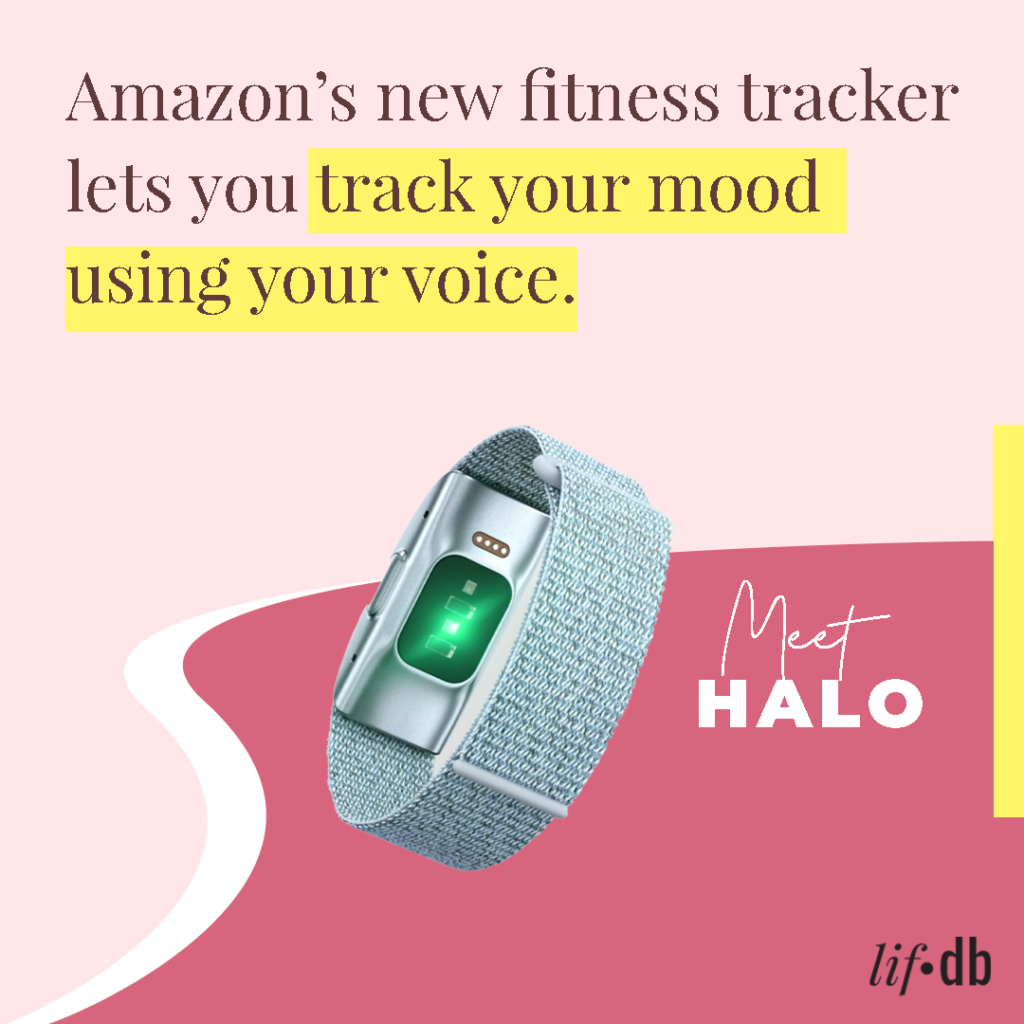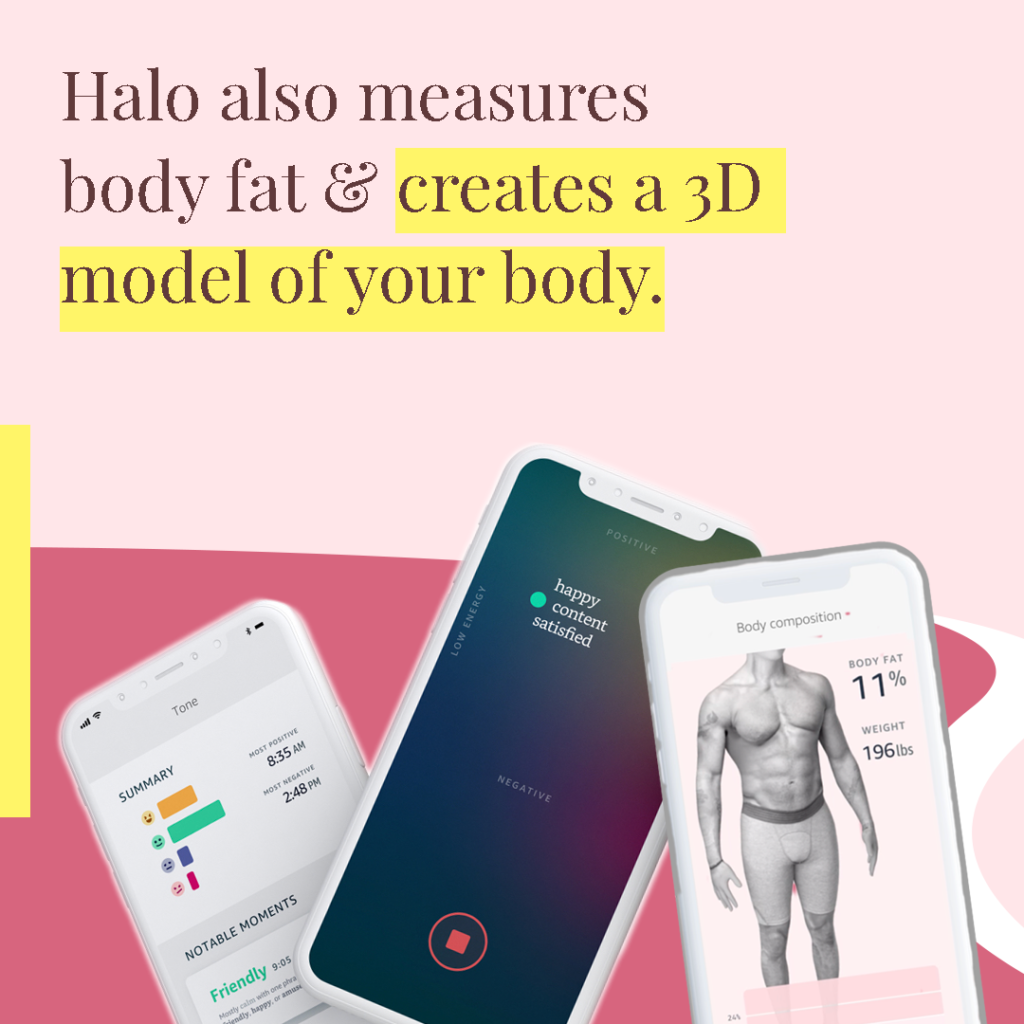Amazon announced the release of Halo, a fitness tracker and a direct competitor to Fitbit.
- Currently available via early access for $64.99 (regularly priced at $99.99).
- The purchase also comes with free Halo membership for 6 months. The membership costs $3.99 + tax on auto-renew.
What’s New?
Voice
The technology uses the tone of your voice to assess mood throughout the day. You gain an understanding of how you might sound to others and your emotions, improving your social wellbeing and communication. This requires the microphones to be turned on. Halo does give you the option to turn them off for privacy.
Most mood tracker apps have users self-report their mood. This is the first time we have a device that analyzes and categorizes your emotions. This helps track how you feel and how you come across to other people.
Body Fat
Halo uses artificial intelligence to measure body fat and creates a 3D model of your body. For this to work, you have to take body images from your phone.
Amazon understands the privacy concerns with images and voice tracking, and they claim that the pictures will be deleted from the cloud after processing and users have full control of their microphone.
Why go through all this trouble to measure body fat? Experts consider body fat as a more accurate gauge of overall health compared to body weight and BMI, since it takes into account body composition, such as how much of your weight is fat, muscles, tissue.
Activity and Sleep
Like most fitness trackers, Halo tracks your activity and analyzes level of intensity and it also comes with a sleep tracker. In terms of looks, the tracker wants to be distraction free, so it’s a band sans a screen.
With the Halo membership, you get access to tools and metrics and Halo labs, where you can participate in “trackable challenges and experiments to help you build better habits.”
Wellness vs. Fitness Tracker
Amazon aims to cover a broader definition of fitness beyond heart rate, tracking movement, and breathing and meditation exercises. Science-backed data, expert-input, and technology are on the forefront of its selling point. More than tracking what you do, the goal is to “connect what you do to how you feel” so you get an understanding how your habits affect your overall physical and emotional well-being.
The More You Know
Apple, Amazon, and Google all have invested in wearable tech and wellness. Google announced that it plans to acquire Fitbit for $2.1 billion in July 2020 and to finalize the deal by the end of the year.


